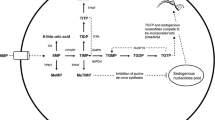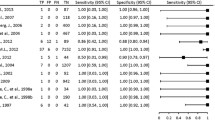Abstract
Thiopurine S-methyltransferase (TPMT) is a cytosolic enzyme that plays a major role in the metabolism of thiopurine drugs such as mercaptopurine and azathioprine. The interindividual differences in response to thiopurine administration is in part due to the presence of genetic polymorphisms in the gene that regulates TPMT activity. TPMT genotype correlates well with the in vivo enzyme activity within erythrocytes. Patients with genetically determined decreased TPMT activity develop severe myelosuppression when treated with standard doses of thiopurine drugs because an excess of thioguanine nucleotides accumulates in hematopoietic tissues.
TPMT genotyping provides clinicians with a reliable method for identifying TPMT-deficient patients who can benefit from low doses of thiopurine drugs in order to reduce the risk of developing adverse effects. Moreover, the administration of higher doses of the drug could improve therapeutic response in patients in whom the TPMT genotyping demonstrates the absence of mutated alleles.



Similar content being viewed by others
References
Snow JL, Gibson LE. The role of genetic variation in thiopurine methyltransferase activity and the efficacy and/or side effects of azathioprine therapy in dermatologic patients. Arch Dermatol 1995; 131(2): 193–7
Snow JL, Gibson LE. A pharmacogenetic basis for the safe and effective use of azathioprine and other thiopurine drugs in dermatologic patients. J Am Acad Dermatol 1995; 32(1): 114–6
Lennard L, Lilleyman JS, Van Loon J, et al. Genetic variation in response to 6-mercaptopurine for childhood acute lymphoblastic leukaemia. Lancet 1990; 336(8709): 225–9
Chocair PR, Duley JA, Simmonds HA, et al. The importance of thiopurine methyltransferase activity for the use of azathioprine in transplant recipients. Transplantation 1992; 53(5): 1051–6
Krynetski EY, Tai HL, Yates CR, et al. Genetic polymorphism of thiopurine S-methyltransferase: clinical importance and molecular mechanisms. Pharmacogenetics 1996; 6(4): 279–90
McLeod HL, Krynetski EY, Relling MV, et al. Genetic polymorphism of thiopurine methyltransferase and its clinical relevance for childhood acute lymphoblastic leukemia. Leukemia 2000; 14(4): 567–72
McKendry RJR. Azathioprine and methotrexate as combination chemotherapy in rheumatoid arthritis. J Rheumatol Suppl 1990; 17: 28–33
Stolk JN, Boerbooms AM, De Abreu RA, et al. Azathioprine treatment and thiopurine metabolism in rheumatic diseases: introduction and first results of investigation. Adv Exp Med Biol 1998; 431: 487–93
Whisnant JK, Pelkey J. Rheumatoid arthritis: treatment with azathioprine (IMURAN (R)): clinical side-effects and laboratory abnormalities. Ann Rheum Dis 1982; 41Suppl. 1: 44–7
Nielsen OH, Vainer B, Rask-Madsen J. Review article: the treatment of inflammatory bowel disease with 6-mercaptopurine or azathioprine. Aliment Pharmacol Ther 2001; 15(11): 1699–708
Sandborn WJ, Van OE, Zins BJ, et al. An intravenous loading dose of azathioprine decreases the time to response in patients with Crohn’s disease. Gastroenterology 1995; 109(6): 1808–17
Sandborn WJ. Azathioprine: state of the art in inflammatory bowel disease. Scand J Gastroenterol Suppl 1998; 225: 92–9
Leipold G, Schutz E, Haas JP, et al. Azathioprine-induced severe pancytopenia due to a homozygous two-point mutation of the thiopurine methyltransferase gene in a patient with juvenile HLA-B27-associated spondylarthritis. Arthritis Rheum 1997; 40(10): 1896–8
Andersen JB, Szumlanski C, Weinshilboum RM, et al. Pharmacokinetics, dose adjustments, and 6-mercaptopurine/methotrexate drug interactions in two patients with thiopurine methyltransferase deficiency. Acta Paediatr 1998; 87(1): 108–11
Ben Ari Z, Mehta A, Lennard L, et al. Azathioprine-induced myelosuppression due to thiopurine methyltransferase deficiency in a patient with autoimmune hepatitis. J Hepatol 1995; 23(3): 351–4
Corominas H, Domenech M, Gonzalez-Juan D, et al. Aplasia after azathioprine administration: role of the thiopurine methyltransferase genetic polymorphism. Med Clin (Barc) 2000; 115(8): 299–301
Evans WE, Horner M, Chu YQ, et al. Altered mercaptopurine metabolism, toxic effects, and dosage requirement in a thiopurine methyltransferase-deficient child with acute lymphocytic leukemia. J Pediatr 1991; 119(6): 985–9
Jackson AP, Hall AG, McLelland J. Thiopurine methyltransferase levels should be measured before commencing patients on azathioprine. Br J Dermatol 1997; 136(1): 133–4
Kerstens PJ, Stolk JN, De Abreu RA, et al. Azathioprine-related bone marrow toxicity and low activities of purine enzymes in patients with rheumatoid arthritis. Arthritis Rheum 1995; 38(1): 142–5
Lennard L, Gibson BE, Nicole T, et al. Congenital thiopurine methyltransferase deficiency and 6-mercaptopurine toxicity during treatment for acute lymphoblastic leukaemia. Arch Dis Child 1993; 69(5): 577–9
Rodman JH, Relling MV, Stewart CF, et al. Clinical pharmacokinetics and pharmacodynamics of anticancer drugs in children. Semin Oncol 1993; 20(1): 18–29
Weinshilboum RM, Sladek SL. Mercaptopurine pharmacogenetics: monogenic inheritance of erythrocyte thiopurine methyltransferase activity. Am J Hum Genet 1980; 32(5): 651–62
Coulthard SA, Hogarth LA, Little M, et al. The effect of thiopurine methyltransferase expression on sensitivity to thiopurine drugs. Mol Pharmacol 2002; 62(1): 102–9
Dervieux T, Blanco JG, Krynetski EY, et al. Differing contribution of thiopurine methyltransferase to mercaptopurine versus thioguanine effects in human leukemic cells. Cancer Res 2001; 61(15): 5810–6
Gunnarsdottir S, Elfarra AA. Glutathione-dependent metabolism of cis-3-(9H-purin-6-ylthio) acrylic acid to yield the chemotherapeutic drug 6-mercaptopurine: evidence for two distinct mechanisms in rats. J Pharmacol Exp Ther 1999; 290(3): 950–7
Evans WE, Hon YY, Bomgaars L, et al. Preponderance of thiopurine S-methyltransferase deficiency and heterozygosity among patients intolerant to mercaptopurine or azathioprine. J Clin Oncol 2001; 19(8): 2293–301
Stolk JN, Boerbooms AM, de Abreu RA, et al. Reduced thiopurine methyltransferase activity and development of side effects of azathioprine treatment in patients with rheumatoid arthritis. Arthritis Rheum 1998; 41(10): 1858–66
Schwab M, Schaffeler E, Marx C, et al. Azathioprine therapy and adverse drug reactions in patients with inflammatory bowel disease: impact of thiopurine S-methyltransferase polymorphism. Pharmacogenetics 2002; 12(6): 429–36
Naughton MA, Battaglia E, O’Brien E, et al. Identification of thiopurine methyltransferase (TPMT) polymorphisms cannot predict myelosuppression in systemic lupus erythematosus patients taking azathioprine. Rheumatology 1999; 38: 640–4
McLeod HL, Coulthard S, Thomas AE, et al. Analysis of thiopurine methyltransferase variant alleles in childhood acute lymphoblastic leukaemia. Br J Haematol 1999; 105(3): 696–700
Corominas H, Domenech M, Gonzalez D, et al. Allelic variants of the thiopurine S-methyltransferase deficiency in patients with ulcerative colitis and in healthy controls. Am J Gastroenterol 2000; 95(9): 2313–7
Corominas H, Domenech M, Laiz A, et al. Is thiopurine methyltransferase genetic polymorphism a major factor for withdrawal of azathioprine in rheumatoid arthritis patients? Rheumatology (Oxf) 2003; 42(1): 40–5
Szumlanski CL, Honchel R, Scott MC, et al. Human liver thiopurine methyltransferase pharmacogenetics: biochemical properties, liver erythrocyte correlation and presence of isozyme. Pharmacogenetics 1992; 2: 148–59
Van Loon JA, Weinshilboum RM. Thiopurine methyltransferase biochemical genetics: human lymphocyte activity. Biochem Genet 1982; 20(7–8): 637–58
Woodson LC, Dunnette JH, Weinshilboum RM. Pharmacogenetics of human thiopurine methyltransferase: kidney-erythrocyte correlation and immunotitration studies. J Pharmacol Exp Ther 1982; 222(1): 174–81
Weinshilboum RM. Pharmacogenetics of methyl conjugation and thiopurine drug toxicity. Bioessays 1987; 7(2): 78–82
Honchel R, Aksoy I, Szumlansky C, et al. Human thiopurine methyltransferase: molecular cloning and expression of T84 colon carcinoma cell cDNA. Mol Pharmacol 1993; 43: 878–87
Lee D, Szumlanski C, Houtman J, et al. Thiopurine methyltransferase pharmacogenetics: cloning of human liver cDNA and a processed pseudogene on human chromosome 18q21.1. Drug Metab Dispos 1995; 23(3): 398–405
Szumlanski C, Otterness D, Her C, et al. Thiopurine methyltransferase pharmacogenetics: human gene cloning and characterization of a common polymorphism. DNA Cell Biol 1996; 15(1): 17–30
Krynetski EY, Fessing MY, Yates CR, et al. Promoter and intronic sequences of the human thiopurine S-methyltransferase (TPMT) gene isolated from a human PAC1 genomic library. Pharm Res 1997; 14(12): 1672–8
Seki T, Tanaka T, Nakamura Y. Genomic structure and multiple single-nucleotide polymorphisms (SNPs) of the thiopurine S-methyltransferase (TPMT) gene. J Hum Genet 2000; 45(5): 299–302
Fessing MY, Belkov VM, Krynetski EY, et al. Molecular cloning and functional characterization of the cDNA encoding the murine thiopurine S-methyltransferase (TPMT). FEBS Lett 1998; 424(3): 143–5
Krynetski EY, Schuetz JD, Galpin AJ, et al. A single point mutation leading to loss of catalytic activity in human thiopurine S-methyltransferase. Proc Natl Acad Sci U S A 1995; 92(4): 949–53
Tai HL, Krynetski EY, Yates CR, et al. Thiopurine S-methyltransferase deficiency: two nucleotide transitions define the most prevalent mutant allele associated with loss of catalytic activity in Caucasians. Am J Hum Genet 1996; 58(4): 694–702
Yates CR, Krynetski EY, Loennechen T, et al. Molecular diagnosis of thiopurine S-methyltransferase deficiency: genetic basis for azathioprine and mercaptopurine intolerance. Ann Intern Med 1997; 126(8): 608–14
Otterness DM, Szumlanski CL, Wood TC, et al. Human thiopurine methyltransferase pharmacogenetics: kindred with a terminal exon splice junction mutation that results in loss of activity. J Clin Invest 1998; 101(5): 1036–44
Spire-Vayron de la Moureyre C, Debuysere H, Sabbagh N, et al. Detection of known and new mutations in the thiopurine S-methyltransferase gene by singlestrand conformation polymorphism analysis. Hum Mutat 1998; 12(3): 177–85
Yan L, Zhang S, Eiff B, et al. Thiopurine methyltransferase polymorphic tandem repeat: genotype-phenotype correlation analysis. Clin Pharmacol Ther 2000; 68(2): 210–9
Ameyaw MM, Collie-Duguid ES, Powrie RH, et al. Thiopurine methyltransferase alleles in British and Ghanaian populations. Hum Mol Genet 1999; 8(2): 367–70
Spire-Vayron de la Moureyre C, Debuysere H, Mastain B, et al. Genotypic and phenotypic analysis of the polymorphic thiopurine S-methyltransferase gene (TPMT) in a European population. Br J Pharmacol 1998; 125(4): 879–87
Collie-Duguid ES, Pritchard SC, Powrie RH, et al. The frequency and distribution of thiopurine methyltransferase alleles in Caucasian and Asian populations. Pharmacogenetics 1999; 9(1): 37–42
McLeod HL, Pritchard SC, Githang’a J, et al. Ethnic differences in thiopurine methyltransferase pharmacogenetics: evidence for allele specificity in Caucasian and Kenyan individuals. Pharmacogenetics 1999; 9(6): 773–6
Kumagai K, Hiyama K, Ishioka S, et al. Allelotype frequency of the thiopurine methyltransferase (TPMT) gene in Japanese. Pharmacogenetics 2001; 11(3): 275–8
Chang JG, Lee LS, Chen CM, et al. Molecular analysis of thiopurine S-methyltransferase alleles in South-east Asian populations. Pharmacogenetics 2002; 12(3): 191–5
Lennard L, Lilleyman JS. Variable mercaptopurine metabolism and treatment outcome in childhood lymphoblastic leukemia. J Clin Oncol 1989; 7(12): 1816–23
Coulthard SA, Howell C, Robson J, et al. The relationship between thiopurine methyltransferase activity and genotype in blasts from patients with acute leukemia. Blood 1998; 92(8): 2856–62
Coulthard SA, Rabello C, Robson J, et al. A comparison of molecular and enzyme-based assays for the detection of thiopurine methyltransferase mutations. Br J Haematol 2000; 110(3): 599–604
Regueiro M, Mardini H. Determination of thiopurine methyltransferase genotype or phenotype optimizes initial dosing of azathioprine for the treatment of Crohn’s disease. J Clin Gastroenterol 2002; 35(3): 240–4
Dubinsky MC, Lamothe S, Yang HY, et al. Pharmacogenomics and metabolite measurement for 6-mercaptopurine therapy in inflammatory bowel disease. Gastroenterology 2000; 118(4): 705–13
Dubinsky MC, Yang HY, Hassard PV, et al. 6-MP metabolite profiles provide a biochemical explanation for 6-MP resistance in patients with inflammatory bowel disease. Gastroenterology 2002; 122(4): 904–15
Stolk JN, Boeerboms AMT, De Abreu RA, et al. Reduced thiopurine methyltrasnsferase activity and developement of side effects of azathioprine treatment in patients with rheumatoid arthritis. Arthritis Rheum 1998; 41(10): 1858–66
Acknowledgements
The expert clinical assistance of the members of the Rheumatology Unit, Department of Internal Medicine from the Hospital de la Santa Creu i Sant Pau is gratefully acknowledged. This work was partially supported by grant SAF 2001-1055 from the Spanish Ministry of Science and Technology.
Author information
Authors and Affiliations
Corresponding author
Rights and permissions
About this article
Cite this article
Corominas, H., Baiget, M. Clinical Utility of Thiopurine S-Methyltransferase Genotyping. Am J Pharmacogenomics 4, 1–8 (2004). https://doi.org/10.2165/00129785-200404010-00001
Published:
Issue Date:
DOI: https://doi.org/10.2165/00129785-200404010-00001




